‘Lament as a Means of Survival’ by Claire Musters: 7 Ways to Pray blog series
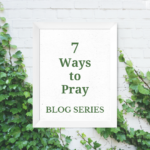
The experience of heart-wrenching trials has pushed Claire even closer to God, especially as she has rediscovered the prayer of lament. She shares movingly and gives a helpful example of how to pray this way, based on Psalm 13. You won’t want to miss this.
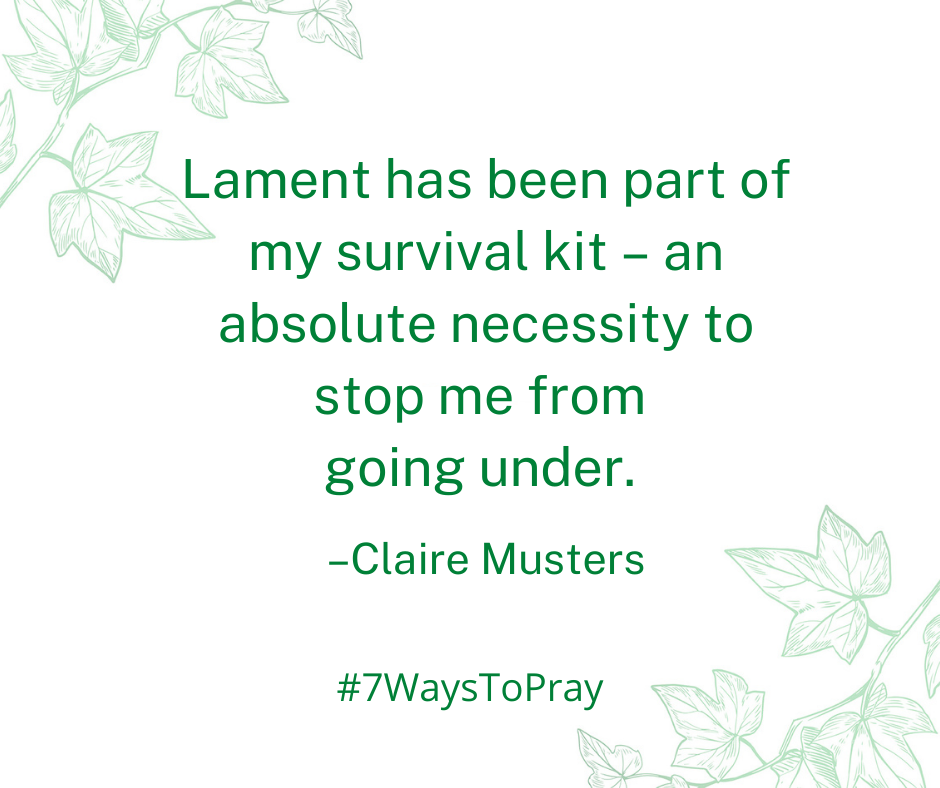
Guttural cries of ‘Why Lord?’, heart-wrenching pain, endless tears, physical exhaustion.
These are all a regular part of my days right now, as I watch one of those dearest to me struggle in ways I almost cannot bear. Suffering (whether your own or of one close to you) can rend you speechless, spiralling into the abyss of a dark unknown, even as you cry out to God for rescue, for a glimmer of hope… for anything that shows he is at work.
Unfamiliar territory
I have to confess lament was not something I practised regularly until around five years ago. I come from an evangelical church that is not big on tradition, and does not follow a traditional church calendar. But it was when my sister’s marriage fell apart and my mum’s health began to deteriorate rapidly that the emotional turmoil inside of me needed an outlet. In the midst of this, a dear young mum in our church died, leaving a husband and three small children. All of a sudden I was grieving privately in my family but also publicly with my church family. As my husband and I tried to lead our congregation through it (he as the pastor, me the worship pastor) I felt suffocated, alone and with no way of releasing the pain within. When I gathered the worship team who would be playing that first Sunday after her death, I realised that we had no language to express what we needed to as a community, but also as individuals.
A God-given language
During that season, I was drawn back to the Psalms, gently reminded by God that so many are songs of lament, and that I had utilised them once before. In an incredibly painful time in my marriage, I had opened Psalm 38 and the words had leapt off the page to me, as they seemed to describe exactly what I was experiencing then: ‘My wounds fester and are loathsome because of my sinful folly. I am bowed down and brought very low; all day long I go about mourning… I am feeble and utterly crushed; I groan in anguish of heart’ (Psalm 38:5–6,8).
Back then, it was a revelation of my own sinfulness and the resulting pain that caused me to lament. But in more recent years, it has been a cry from deep in my soul that has been almost unstoppable. It has become a way I have desperately tried to remain connected to God through circumstances that have threatened to engulf me or those I dearly love. Some days it can sometimes feel like all hope is lost – and yet lament is the bridge that helps me find my way back to God when he seems distant or hidden.
I don’t relish the experiences that have revealed how vital lament is to me, but I do cherish the renewed understanding that God has given us permission to vent all our anger, frustration, anguish, as well as our questions, through the examples in the Psalms and Lamentations – as well as of Jesus himself.
Faith and intimacy
I am walking a particularly painful path right now – and it has seemed relentless for the last few years. My mum passed away just before Covid, and almost immediately we were swept into working hard to keep our church community feel connected during the lockdowns, and now we are in the midst of an excruciatingly painful situation in our immediate family.
When my mum died, God spoke to me so clearly through John 11 – revealing an image of Jesus weeping alongside me. That has been a real comfort at times, but in other moments the sense of loss and pain has been overwhelming. In those times, I have come to view lament as part of my survival kit – an absolutely necessity to stop me from going under.
Lamenting with the Psalms
The pandemic has brought suffering to so many families, and this life is full of troubles (as well as joys). If you don’t regularly practise lament, I encourage you gently to try finding a psalm that seems to echo the cry of your heart and turn it into a prayer.
Here is an example of the way in which I use particular psalms as launchpads for my own prayers – I hope it is helpful to you, but of course do feel free to find your own individual way of lamenting before God.
Psalm 13, with my accompanying prayers:
1 How long, Lord? Will you forget me for ever?
How long will you hide your face from me?
God I can’t see you at work in this situation. It feels like I am having to cope on my own. I know you are there – please reveal yourself to me. Show me you haven’t forgotten us.
2 How long must I wrestle with my thoughts
and day after day have sorrow in my heart?
How long will my enemy triumph over me?
This all feels relentless, and it does feel like the devil is having a field day. I am finding it hard to keep batting away the discouragement, and my own depression. How long is this going to go on for Lord?
3 Look on me and answer, Lord my God.
Give light to my eyes, or I will sleep in death,
4 and my enemy will say, ‘I have overcome him,’
and my foes will rejoice when I fall.
We need you to move – we need release! Come and act, move so that those around will know that you are God. And bring me your discernment and wisdom to know what to do – and your energy. I am so tired Lord…
5 But I trust in your unfailing love;
my heart rejoices in your salvation.
6 I will sing the Lord’s praise,
for he has been good to me.
I do trust you Lord, however hard that is to say at times – and I do know that you are good and that your character cannot change. I also choose to worship you, singing songs of thanks, because I know they stir my heart and do me good. Thank you for the salvation you have brought me, thank you for the way you have led me in the past – and thank you for the way you have upheld my family. I know that you love them more than I do – and trust that you have a hope and a future for each one of us.

Claire Musters is a writer, speaker, editor and author of several books. You can follow her at @CMusters on Twitter and on Facebook or visit her website. Her most recent book, Grace-Filled Marriage (Authentic Media), was written with her husband and is available to buy from clairemusters.com – it is also part of the Big Church Read initiative (see thebigchurchread.co.uk/grace-filled-marriage/ for videos, reading plan and discussion questions). The devotional she wrote while her mum was dying, Every Day Insights: Disappointment and loss (30 readings and reflections to help bring comfort and hope), can also be bought direct from Claire, as can all her books – contact Claire on cmusters@Icloud.com for more details (including special Christmas offers).
Order 7 Ways to Pray here, including in the US, UK, and Australia. You’ll also find lots of resources for small groups – videos and a leader’s guide – here.

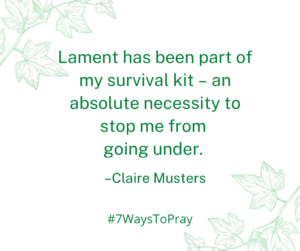




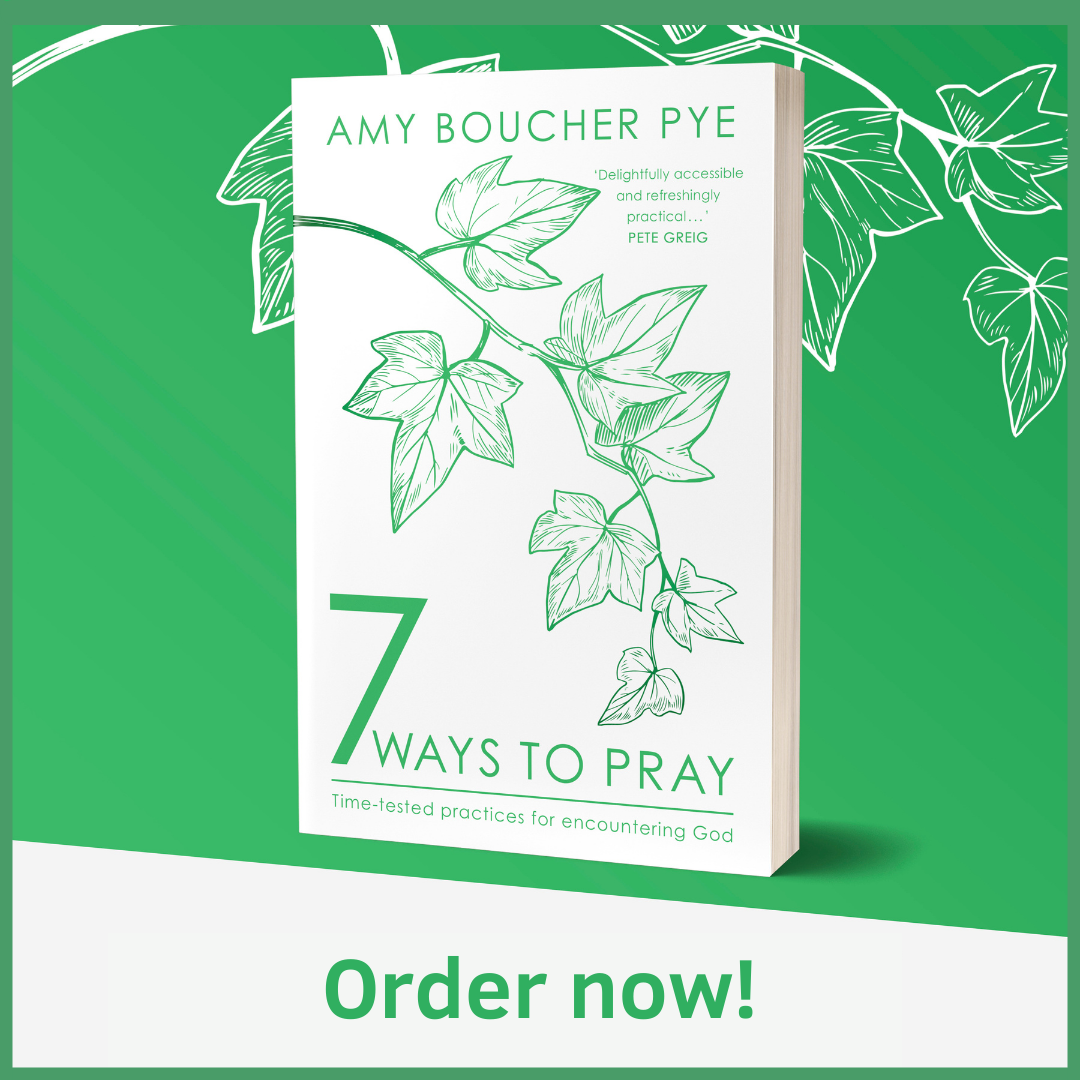
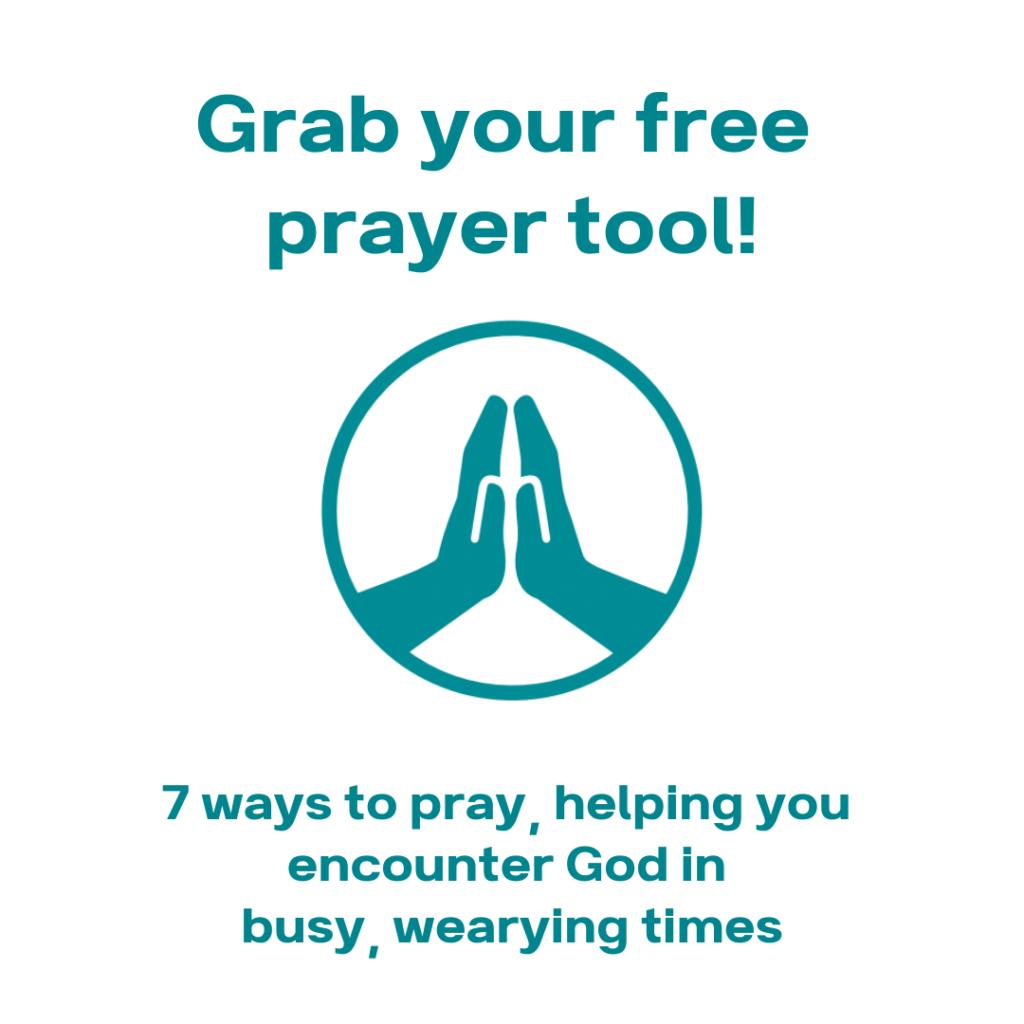
 Hello!
Hello! 
Pingback : Amy Boucher Pye » “What Kind of Pray-er Are You?” by Sam Richardson: 7 Ways to Pray blog series